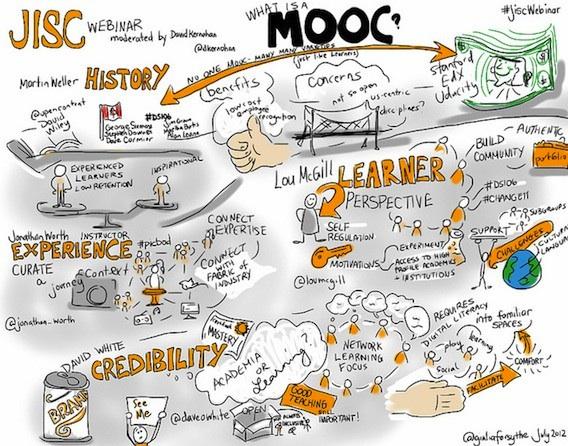How MOOCs Are Revolutionizing Lifelong Learning: Exploring Their Vital Role in Education
The landscape of education is undergoing a dramatic transformation, and at the heart of this movement are moocs—Massive Open Online Courses. For millions, these flexible and accessible platforms are unlocking new learning opportunities outside customary classrooms. In this article,we’ll dive deep into how MOOCs are revolutionizing lifelong learning,their vital role in education,and practical ways to benefit from this digital shift.
What Are MOOCs? Understanding the Basics
MOOCs, or Massive Open Online Courses, are web-based courses designed for unlimited participation and open access.launched in the early 2010s, they’ve grown rapidly thanks to platforms like Coursera, edX, Udemy, and FutureLearn. These programs offer:
- Expert-led instruction: Manny courses are created by leading universities and industry professionals.
- Flexible formats: Learners can study at their own pace, often for free or at a low cost.
- Global reach: MOOCs connect learners from all over the world, fostering a diverse learning community.
- Variety of subjects: From data science to literature, there are MOOCs for virtually every interest or career field.
The Vital Role of MOOCs in Lifelong Learning
Lifelong learning is more significant than ever in our rapidly evolving, technology-driven world. Here’s how MOOCs are supporting and shaping the lifelong learning movement:
1. Accessibility and Inclusivity
moocs break down traditional barriers to education by eliminating prerequisites, costs, and geographic restrictions. This empowers individuals—irrespective of age, background, or financial status—to learn new skills and knowledge.
2. Continuous Skill Advancement
Professionals need to keep pace with changing industry standards and emerging technologies. MOOCs allow for ongoing upskilling and reskilling, enabling individuals to remain relevant in their fields and adapt to job market demands.
3. Self-Paced, flexible Learning
moocs cater perfectly to busy lifestyles.Courses can be taken anytime, anywhere, allowing learners to integrate education into their daily routines without sacrificing work or family commitments.
4. Fostering Global Collaboration
Discussion forums and collaborative projects bring together participants from around the world,facilitating cultural exchange and collective problem-solving.
Key Benefits and advantages of MOOCs
- Cost-Effective Learning: Most MOOCs are free, or charge nominal fees for certificates and premium features, making quality education affordable.
- Continuous Access to Updated Content: Courses are regularly refreshed to stay current with the latest facts and skills in various industries.
- Certification and Career Advancement: Earning MOOC certificates can strengthen your CV, LinkedIn profile, and professional credibility.
- Personalized Learning Paths: Learners can choose from entry-level courses to advanced topics,customizing their education journey.
- Interactive Learning Experiences: MOOCs often include quizzes, peer assessments, hands-on projects, and discussion groups to enhance engagement.
Practical Tips for Making the Most of MOOCs
- Set Clear Goals: Identify what you want to achieve—whether upskilling for a promotion, transitioning careers, or exploring a new hobby.
- Stay Organized: Dedicate regular time slots for learning, and use digital tools (like calendars and reminders) to track your progress.
- Participate Actively: Engage in discussions,join study groups,and seek help when needed. Active participation boosts retention and enjoyment.
- Apply What You Learn: Reinforce your knowledge by applying new skills to real-world projects or challenges in your work/personal life.
- Consider Accreditation: If possible, pursue verified certificates or micro-credentials to enhance your professional portfolio.
Case Studies: real-World Impact of MOOCs on Lifelong Learning
career Switch: Data Science Success
Laura, a former teacher from Spain, leveraged MOOCs on Coursera and edX to pivot into a data science career. After completing several Python and machine learning courses,she secured an entry-level analyst role with a multinational company—all from the comfort of her home.
Entrepreneurship in Rural india
Mohit, living in a remote indian village, used free MOOCs on buisness management and digital marketing to launch a small agribusiness. Access to world-class content helped him grow his business, illustrating the transformative power of online education in underserved communities.
Retirement Learning: Lifelong Curiosity
John, a retired engineer, now enjoys learning new subjects—ranging from beliefs to creative writing—using MOOCs. He finds intellectual fulfillment and community interactions, demonstrating that lifelong learning is for everyone, at any stage in life.
Overcoming Challenges: Maximizing the Benefits of MOOCs
While MOOCs offer remarkable promise, learners must remain aware of common challenges:
- Completion Rates: Staying motivated can be tough without in-person accountability. setting clear milestones and engaging with peers helps combat dropout rates.
- Course Quality Variance: Not all MOOCs are created equal. Choose offerings from reputable institutions and read peer reviews before enrolling.
- Recognition Challenges: While many employers value MOOC certificates, formal academic credit may still lag behind. Combining MOOCs with industry-recognized certifications can boost your credentials.
future Trends: What’s Next for moocs and Lifelong Learning?
The future of MOOCs looks brighter than ever. Emerging trends include:
- Micro-credentials and Nanodegrees: Short,targeted programs that offer career-specific skills and industry validation.
- Artificial Intelligence and Adaptive Learning: Personalized content recommendations and learning paths powered by intelligent algorithms.
- Corporate-MOOC Partnerships: Global companies collaborating with MOOC platforms to upskill employees and foster workforce agility.
- Increased Focus on Soft Skills: Courses on leadership, communication, and emotional intelligence are becoming as popular as technical subjects.
These trends underscore MOOCs’ growing influence as a cornerstone of education’s digital revolution.
Conclusion
MOOCs now stand as essential pillars in the evolution of lifelong learning, democratizing access to education in unprecedented ways. Whether you’re seeking personal enrichment, career advancement, or a new start, MOOCs offer the flexibility, affordability, and quality today’s learners need. As technology and innovation continue to shape the future, embracing MOOCs can definitely help anyone turn curiosity into achievement—and make learning a lasting, rewarding journey.

